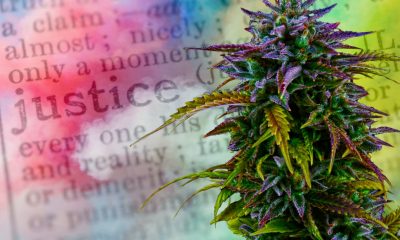Cannabis Culture
New Cannabis shop elevates with a new Art experience
Queer Artists find inspiration in a new venue


The Artist Tree is located at 8625 Santa Monica Blvd in WeHo. (Rendering courtesy of RDC (Retail Design Collaborative)
A new cannabis retail and arts space, housing a dispensary and delivery service along with a rotating gallery of local art and a cannabis learning center opened Friday, November 22, at 8625 Santa Monica Blvd in West Hollywood.
“The Artist Tree is a portal to experience California’s incredible art scene like never before with original works from California’s most inspired artists and a wide range of the freshest cannabis products to hit the market,” according to a press release.
“Cannabis makes concerts, museums and pretty much everything, more fun. The Artist Tree will enhance your perception of the arts and change how you experience cannabis,” says Lauren Fontein, co-founder of The Artist Tree stated in the release. “Art of all kinds and the best cannabis product available are integrated with interactive educational hubs throughout the space. Shopping with us is an immersive experience unlike anything in the world.”
In a pre-opening publicity pamphlet, The Artist Tree noted, “The cannabis retail and arts space will house a dispensary and delivery service, a rotating gallery of local art and a cannabis learning center. The most striking education hub is the beautifully designed Cultivation Learning Center, a 10 x 15 enclosed glass room, highlighting cannabis clone plants at various stages of their development. Guests will be able to walk through the glass cube and visualize the entire craft cannabis production process with cloned plants.”
“For LGBTQI people who use cannabis for medical or personal use, and more-so especially for Queer Artists, the opening of The Artist Tree will offer another outlet to showcase their creations,” a spokesperson for The Artist Tree told the Los Angles Blade Friday.
For more information on The Artist Tree visit www.theartisttree.com and follow on Instagram.
a&e features
Highstream 420 Festival Livestream
Join us on 4/20 at 4:00pm EST for a full day of music performances, online workshops, demos, and interactive panels.


America’s largest cannabis gatherings, National Cannabis Festival and The Emerald Cup, combine forces for a coast-to-coast online 420 festival benefiting Coronavirus relief charities.
Join us on 4/20 at 4:00pm EST for a full day of music performances, online workshops, demos, and interactive panels.
The Los Angeles Blade will be live streaming on this page and on our Facebook page HERE.
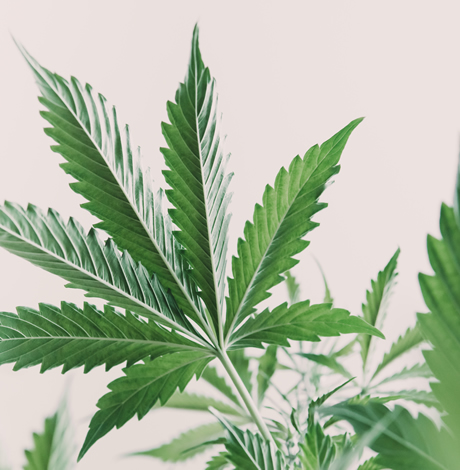
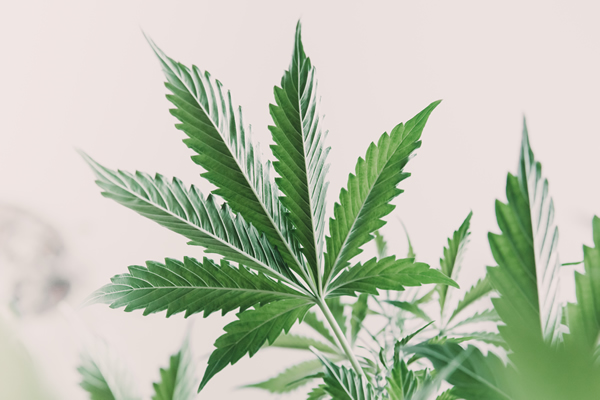 Two-thirds of Latinos back legalizing marijuana
Two-thirds of Latinos back legalizing marijuana
SANTA MONICA, Calif. — More than two in three U.S. Hispanic adults support legalizing marijuana, according to nationwide polling data compiled by the digital media firm H Code.
Pollsters surveyed a nationally representative sample of over 1,300 English- and Spanish-speaking U.S. Hispanic respondents. Sixty-eight percent of those polled said that they are favor of legalizing marijuana in the United States.
That percentage is consistent with other nationwide polls of U.S. adults, such as those here, here, and here, finding that two-thirds of respondents believe that the adult use of cannabis ought to be legal. By contrast, prior polls of Hispanic-only voters had often reported that Latinos were less likely than the general population to express support for legalizing cannabis.
Smoking cannabis is most popular method of ingestion
SEATTLE — Adults who consume cannabis are most likely to smoke it, according to data compiled by the U.S. Centers for Disease Control (CDC) and published in the journal Drug and Alcohol Dependence.
Researchers analyzed data from over 6,100 adult cannabis consumers in 12 states. Ninety-one percent of respondents acknowledging having smoked herbal cannabis, with 59 percent reporting that inhalation “was their only mode of marijuana use.” By contrast, only 25 percent of respondents reported having ever used cannabis-infused edible products, and only 20 percent reported ever having vaporized cannabis. Five percent of subjects reported exclusively consuming marijuana edibles, and two percent said that they only vaped cannabis.
The data is consistent with prior studies, such as those here and here, showing that the majority of people who self-report consuming cannabis do so by methods that involve smoking the substance.
Medical cannabis is Maine’s 3rd largest economic market
AUGUSTA, Maine — Patients purchased an estimated $112 million worth of medical cannabis-related products in 2019, according to newly released Maine tax data.
The annual revenues related to medical cannabis are more than the total revenues generated by the sales of blueberries, maple syrup, apples, herring, and oysters combined. Only the state’s lobster industry and potato industry bring in more annual revenue.
Some three-quarters of the revenue generated from medical cannabis (85.3 million) came from sales by caregivers to patients. Although the state’s medical cannabis access program has been operational for some two decades, Maine officials only began tracking caregiver-related tax revenue in February of 2019.
Licensed retail adult-use marijuana sales are anticipated to begin in June.
Cannabis Culture news in the Blade is provided in partnership with NORML. Visit norml.org for more information.
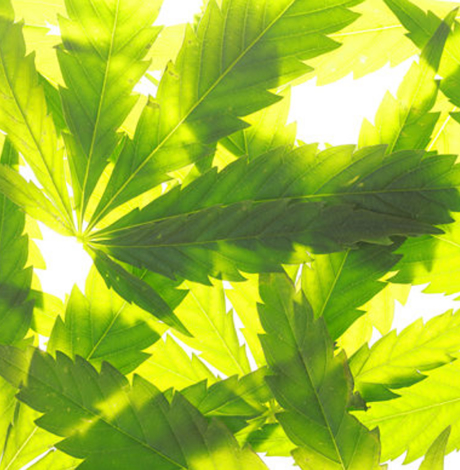
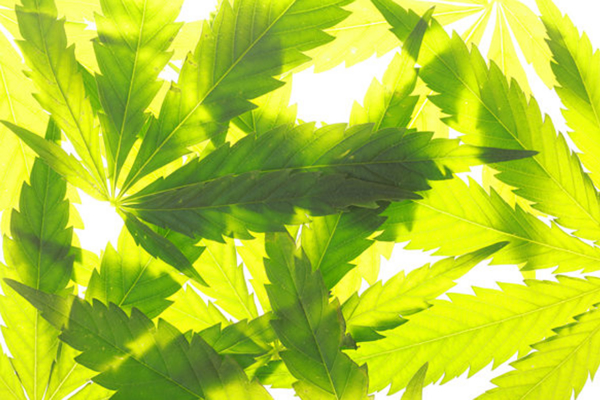 ABA calls for marijuana banking access
ABA calls for marijuana banking access
CHICAGO — The American Bar Association has adopted a resolution urging the passage of federal legislation facilitating banks and other financial institutions to legally interact with licensed cannabis businesses.
The resolution calls for the “enactment of [federal] laws to ensure that it shall not constitute a federal crime for banks and financial institutions to provide cannabis-related services.”
Under existing law, banks are discouraged from engaging with state-licensed marijuana businesses. In September, members of the U.S. House of Representatives voted 321 to 103 in favor of HR 1595: The SAFE Banking Act, amending federal law so that financial institutions may work directly with state-legal marijuana businesses without fear of federal repercussions. The bill now awaits action from the Senate Banking Committee. However, Committee Chair Mike Crapo (R-Ind.) has expressed opposition to the measure.
In 2019, the ABA adopted a separate resolution urging Congress “to enact legislation to remove marijuana from Schedule I of the Controlled Substances Act.” With over 400,000 members, the American Bar Association is among the largest voluntary organizations in the world.
More seniors turning to cannabis
NEW YORK — Cannabis use is increasing among those ages 65 and older, according to data published in the journal JAMA Internal Medicine.
Researchers affiliated with the New York School of Medicine assessed trends in self-reported cannabis use among seniors. They reported that 4.2 percent of seniors acknowledged engaging in past-year cannabis consumption in 2018, up from 2.4 percent in 2015 and 0.4 percent in 2006.
The study’s findings are consistent with those of prior papers similarly reporting an uptick in marijuana use among older Americans. According to a 2019 study published in the journal Gerontology & Geriatric Medicine, marijuana use among seniors is associated with self-reported improvements in pain management, day-to-day functioning, and in their overall health and quality of life.
Employers’ attitudes shifting on drug tests
SUNNYVALE, Calif. — A growing number of companies are either abandoning marijuana-specific drug testing programs or reducing the frequency with which they test, according to nationwide survey data compiled by the online recruitment website Simply Hired Incorporated.
Fifty-five percent of hiring managers polled in the survey said that their companies do not test current employees for off-the-job marijuana use. Among those hiring managers who work for companies that do engage in testing, 40 percent said that “they do it less often than in the past.” Larger-sized companies (1,000+ employees) were far more likely to utilize pre-employment testing for cannabis than were smaller-sized companies.
Nearly 70 percent of hiring managers said that their company would be “okay” with an employee using cannabis while away from work “as long as the company remains unaware of it.” Among employees surveyed, 75 percent said testing positive for marijuana should not be grounds for automatic termination.
Cannabis Culture news in the Blade is provided in partnership with NORML. Visit norml.org for more information.


D.A. Jackie Lacey said the city will dismiss thousands of marijuana convictions. (Blade photo by Karen Ocamb)
L.A. to dismiss 60,000 felony marijuana convictions
LOS ANGELES — The Office of the District Attorney for Los Angeles County has announced that it will dismiss an estimated 66,000 marijuana convictions.
Some 53,000 people are anticipated to have their records expunged. Nearly 60,000 of the cases under review are marijuana-related felony convictions, some of which date back to the 1960s.
“The dismissal of tens of thousands of old cannabis-related convictions in Los Angeles County will bring much-needed relief to communities of color that disproportionately suffered the unjust consequences of our nation’s drug laws,” D.A. Jackie Lacey said in a news release. “I am privileged to be part of a system dedicated to finding innovative solutions and implementing meaningful criminal justice reform that gives all people the support they need to build the life they deserve.”
Los Angeles County is one of several California counties participating in a pilot project that automatically reviews and expunges marijuana-related criminal convictions. To date, District Attorneys in other counties, such as Contra Costa, Sacramento, and San Francisco, have dismissed more than 85,000 marijuana-related convictions.
Pot use linked to weight loss: study
QUEBEC —The use of marijuana is associated with a smaller waistline and lower levels of triglycerides, according to data published in the journal Cannabis and Cannabinoid Research.
An investigator from the Canadian National Public Health Institute assessed the relationship between cannabis use, waist circumference, and triglyceride levels. Data analyzed in the study was extracted from a nationally representative database (the National Health and Nutrition Examination Survey).
The researchers reported that those subjects who consumed marijuana at least four times a week typically possessed a smaller waistline and lower triglycerides than either non-users or former consumers.
The finding is consistent with several prior studies, indicating that marijuana use is associated with lower rates of obesity, BMI, and cholesterol levels.
Legal marijuana industry employs 240,000
SEATTLE — Jobs in the state-licensed cannabis industry rose 15 percent during the past 12 months, and the industry now employs over 243,000 full-time workers, according to data compiled by Leafly.com.
According to its 2020 report, the regulated cannabis industry added 33,700 new jobs over the past year. States adding the greater number of new cannabis-related jobs were Massachusetts (10,266 jobs) and Oklahoma (7,300 jobs). Overall, the total number of full-time jobs in the licensed cannabis industry has doubled since 2017.
“The refusal [of the federal government] to acknowledge the existence of legal cannabis jobs is a powerful act of shaming and stigmatization,” the report concludes.
Cannabis Culture news in the Blade is provided in partnership with NORML. Visit norml.org for more information.
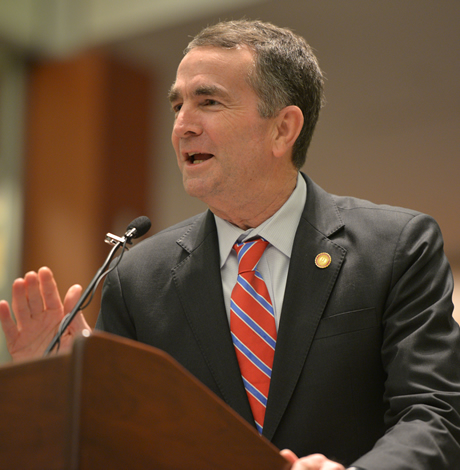
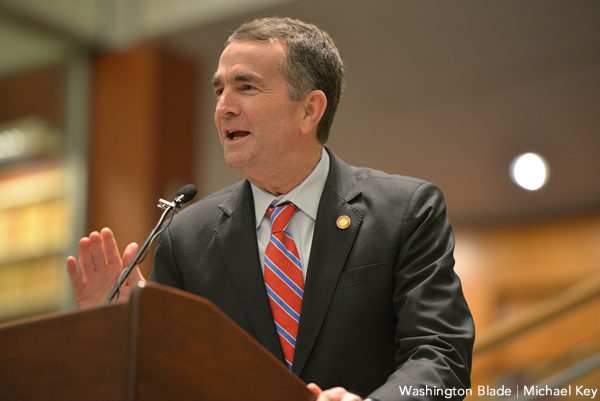
Virginia Gov. Ralph Northam is on record supporting the decriminalization legislation. (Blade file photo by Michael Key)
Va. passes pot decriminalization bills
RICHMOND, Va. — House and Senate lawmakers have passed legislation decriminalizing minor marijuana possession offenses.
House Bill 972, which passed the House of Representatives by a vote of 64 to 34, reduces penalties for offenses involving the possession of up to a half ounce of marijuana to a civil violation – punishable by a maximum $25 fine, no arrest, and no criminal record. Senate Bill 2, which passed the Senate by a vote of 27 to 13, reduces penalties for the possession of up to one ounce of marijuana to a $50 fine. It is anticipated that the two competing bills will be reconciled in conference committee.
Under current law, minor marijuana possession offenses are classified as criminal misdemeanors, punishable by up to 30 days in jail, a criminal record, and the possible loss of driving privileges.
According to data from the Virginia Criminal Sentencing Commission, more than 15,000 people were convicted for a first or second marijuana possession offense from July 2018 to June 2019.
Both the Governor and the Attorney General are on record in favor of decriminalization.
Senate lawmakers also passed separate legislation this week, SB 1015, by a unanimous vote. The measure states that no person may be arrested, prosecuted, or denied any right or privilege for participating in the state’s medical cannabis oil program. The program is expected to be operational and dispensing cannabis products to authorized patients by mid-year.
Cessation of CBD not linked to withdrawal symptoms
LONDON — The abrupt cessation of CBD (cannabidiol) is not associated with physical withdrawal symptoms in healthy volunteers, according to clinical trial data published in the journal Epilepsy & Behavior.
A team of investigators from the United Kingdom and the United States assessed the occurrence of withdrawal symptoms induced by the abrupt cessation of CBD. Subjects in the trial were healthy volunteers who ingested 750mg of plant-derived CBD twice daily for a period of four weeks. Study participants either continued to receive CBD or received a placebo during weeks five and six.
Researchers reported no serious adverse events resulting from the discontinuation of CBD.
They concluded, “In healthy volunteers, no evidence of withdrawal syndrome was found with abrupt discontinuation of short-term treatment with CBD.”
In 2018, federal regulators classified Epidiolex – an FDA-approved formulation of plant-derived CBD – as a Schedule V substance, the lowest restriction classification available under federal law.
Cannabis associated with reduced use of ADHD meds
HAIFA, Israel — The use of medical cannabis is associated with a reduction in the use of ADHD (attention-deficit hyperactivity disorder) medications in patients diagnosed with the syndrome, according to data published in the Israeli medical journal Rambam Maimonides.
Israeli investigators surveyed 59 patients with ADHD who possessed a license from the Ministry of Health to access medical cannabis products. They reported that the use of medical cannabis, and in particular products dominant in the cannabinoid CBN (cannabinol), was associated with medication-sparing effects.
The findings suggest that some ADHD patients may consume cannabis as a “substitute treatment” for more conventional medications, authors concluded. They added, “These results, although not causal, might shed light on the potential beneficial effects of MC on ADHD symptom severity and motivate future prospective studies in order to validate our results and perhaps even consider making ADHD an approved indication for MC license in Israel in future.”
Cannabis Culture news in the Blade is provided in partnership with NORML. Visit norml.org for more information.
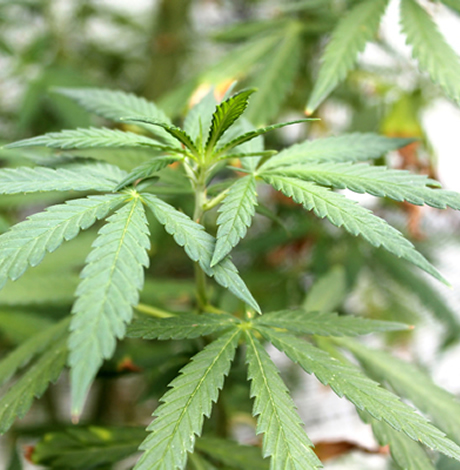
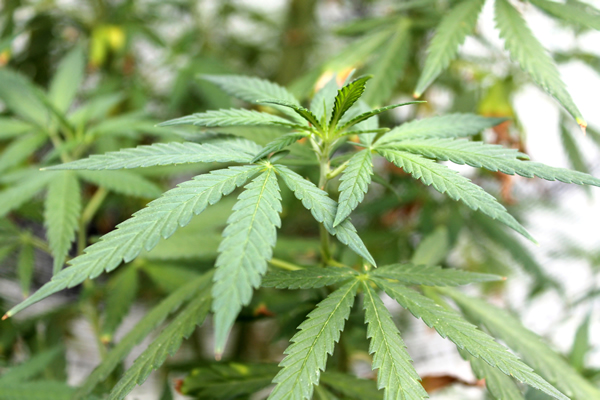 12 percent of adults smoke marijuana: Gallup
12 percent of adults smoke marijuana: Gallup
Twelve percent of U.S. adults self-identify as cannabis consumers, according to survey data compiled by Gallup.
According to the poll, men (15 percent) were more likely than women (nine percent) to acknowledge “smoking marijuana.” Those between the ages of 18 to 29 were most likely to use cannabis (22 percent). Those self-identifying as “white” were more likely to admit using cannabis than were those who identified as non-white (14 percent versus nine percent).
Cannabis use was least likely to be reported by respondents over the age of 65 (three percent), those identifying politically as “conservatives” (four percent), and those residing in the southern region of the United States (seven percent).”
Despite changes in the legal status of marijuana in several states, the Gallup poll reports that there has been little change in nationwide marijuana use patterns since 2015.
No association between marijuana, heart disease: study
CHARLESTON, S.C. — Marijuana smoking is not associated with an elevated risk of coronary artery disease (CAD aka heart disease) in young to middle age adults, according to data published in the journal PLOS One.
A team of investigators affiliated with the Medical University of South Carolina and the University of Texas assessed the relationship between CAD and self-reported cannabis use in 1,420 subjects. Participants in the study were all between the ages of 18 and 50, had experienced chest pain, and underwent a coronary CT angiography.
Researchers reported that subjects with a history of cannabis use were less likely to show evidence of CAD as compared to subjects with no cannabis exposure. Marijuana using subjects also tended to be younger and were less likely to suffer from either hypertension or diabetes.
“The results demonstrate a relatively low frequency of CAD in a younger, marijuana-using patient subgroup,” authors concluded.
Their findings are similar to those of a longitudinal trial which found, “Neither cumulative lifetime nor recent use of marijuana is associated with the incidence of CVD (cardiovascular disease) in middle age.”
Australia decriminalizes cannabis possession in capital
CANBERRA, Australia — Activities involving the personal possession and/or cultivation of cannabis in private are no longer subject to either criminal or civil penalties in the Australian Capital Territory, in accordance with legislation that took effect last week.
Under the new law, those age 18 or older may possess up to 50 grams of cannabis and cultivate up to four plants per household without penalty. The use of marijuana in public remains prohibited.
The ACT’s policy conflicts with Australian federal law, which defines cannabis-related activities as criminal offenses. Between 2017 and 2018, Australian police made over 72,000 marijuana-related arrests – 92 percent of which were for personal possession.
The ACT is the first Australian territory to eliminate penalties specific to marijuana possession.
Cannabis Culture news in the Blade is provided in partnership with NORML. Visit norml.org for more information.

 Austin won’t prosecute low-level pot offenses
Austin won’t prosecute low-level pot offenses
AUSTIN, Texas — Members of the Austin City Council have unanimously approved a resolution that forbids city officials from spending funds for the purpose of prosecuting low-level marijuana possession offenses.
The sponsor of the resolution called the measure necessary in order to reprioritize limited police resources and to arrest the racial disproportionality in marijuana arrests.
Texas NORML Executive Director Jax Finkel praised the change in municipal policy. “Austin officials should be doing the absolute most they can within their discretion to prevent these arrests,” she said. “This resolution prevents taxpayers’ funds from being wasted on enforcing this failed policy and refocuses monies where they belong, protecting our city from violent and property crimes.”
The local ordinance also applies to activities involving the personal possession of cannabis concentrates, edibles, or vapor cartridges.
Under state law, low-level marijuana possession offenses are classified as criminal misdemeanors, punishable by up to 180 days in jail, a $2,000 fine, and a criminal record. Annually, Texas police make over 60,000 marijuana possession arrests – one of the highest totals in the nation.
Cleveland Council moves to decriminalize pot possession
CLEVELAND — Members of the Cleveland City Council have approved municipal legislation de-penalizing marijuana possession offenses. The measure now awaits final approval from the city’s mayor. Under the proposal, activities involving the possession of up to 200 grams of cannabis will no longer be punishable by an arrest, a fine, or a criminal record. Marijuana will still be defined as contraband and will be confiscated by local law enforcement. The measure is similar to those approved in several other Ohio cities, including Athens and Columbus, which also reduce or eliminate municipal penalties for the possession of up to 200 grams of marijuana. Under state law, the possession of marijuana in amounts above 100 grams but below 200 grams is punishable by up to 30 days in jail.Missouri awards medical cannabis dispensary licenses
JEFFERSON CITY, MO — State regulators last week began issuing the first licenses for medical cannabis providers. Under the provisions enacted by a 2018 voter-approved ballot initiative, officials with the Missouri Department of Health and Senior Services must license a minimum of 24 dispensaries in each of the state’s eight congressional districts. Regulators have already registered 27,000 patients to participate in the cannabis access program. Licensed dispensaries are expected to be operational by this spring.Marijuana not associated with low infant birth weight: study
LONDON — Cannabis smoking during pregnancy, absent concurrent tobacco smoking, is not associated with lower birth weight outcomes, according to data published in the Journal of Perinatal Medicine. A team of investigators from Kings College in London assessed the association between the maternal use of tobacco and cannabis on infant birth weight and head circumference. Researchers reported that self-reported tobacco smoking during pregnancy, as well as the combined use of tobacco and cannabis, was associated with reductions in birth weight and head circumference. By contrast, “cannabis use alone was not associated with a significant reduction in birth weight or head circumference.” The study’s finding is consistent with those of prior studies, including a meta-analysis which concluded, “Maternal marijuana use during pregnancy is not an independent risk factor for adverse neonatal outcomes after adjusting for confounding factors.” Cannabis Culture news in the Blade is provided in partnership with NORML. Visit norml.org for more information.

Chief Justice John Roberts issued a report on federal marijuana arrests that showed a significant decline. (Photo public domain)
Federal marijuana prosecutions declining: report
Federal prosecutions for marijuana-related crimes fell significantly from 2018 to 2019, according to a recently released report from Supreme Court Chief Justice John Roberts.
The 2019 end-of-year report finds that the number of federal defendants charged with cannabis-associated crimes declined by 28 percent from Sept. 30, 2018 to Sept. 30, 2019. By contrast, total filings for drug crimes increased five percent over the same time period, totaling over 83,000 cases in 2019.
Separate data compiled by the U.S. Drug Enforcement Administration in July reported a decline in DEA-led marijuana seizures in 2018, but also showed an uptick in DEA-related arrests for marijuana violations. State-level arrests for marijuana violations have increased year-over-year since 2016, according to annual data reported by the U.S. Federal Bureau of Investigation.
HIV patients see neuroprotection from cannabis
SAN DIEGO — A history of cannabis use among people living with HIV is associated with a lower likelihood of neurocognitive decline, according to data published in the Journal of Acquired Immunity Deficiency Syndrome.
Researchers at the University of California, San Diego assessed the association between cannabis use, neurocognitive impairment, and verbal and learning performance in patients with HIV and non-using controls.
Investigators reported that HIV patients who used cannabis were significantly less likely to experience neurocognitive impairment as compared to those patients who had no history of marijuana exposure.
They concluded: “Our findings present evidence that cannabis exposure was associated with lower odds of NCI (neurocognitive impairment) in the context of HIV. … Our results are consistent with the idea that under some circumstances, cannabis might be neuroprotective.”
Cannabis aids sleep in pain patients: study
HAIFA, Israel — The use of plant-derived cannabis is associated with improved sleep among older patients with chronic pain, according to data published in the journal BMJ Supportive & Palliative Care.
A team of Israeli investigators examined the association between sleep problems and cannabis use in older (50+ years of age) chronic pain patients. A total of 128 patients were enrolled in the study. Of them, 66 used medical cannabis for at least one-year. Sixty-two were non-users.
Researchers reported that cannabis use was associated with an overall “positive effect on maintaining sleep throughout the night.”
They concluded: “This study is among the first to test the link between whole plant MC (medical cannabis) use and sleep quality. … Our findings showed that MC patients were less likely to report problems with staying asleep compared with non-MC patients, independently of potential confounders. … This suggests that MC may have a sleep-promoting characteristic in terms of minimizing awakenings during the night. … These findings may have large public health impacts considering the aging of the population, the relatively high prevalence of sleep problems in this population along with increasing use of MC.”
Cannabis Culture news in the Blade is provided in partnership with NORML. For more information, visit norml.org.
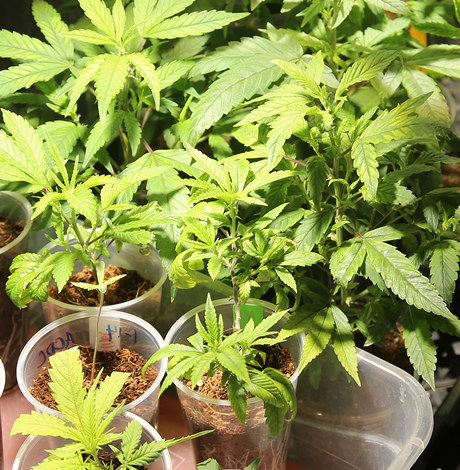
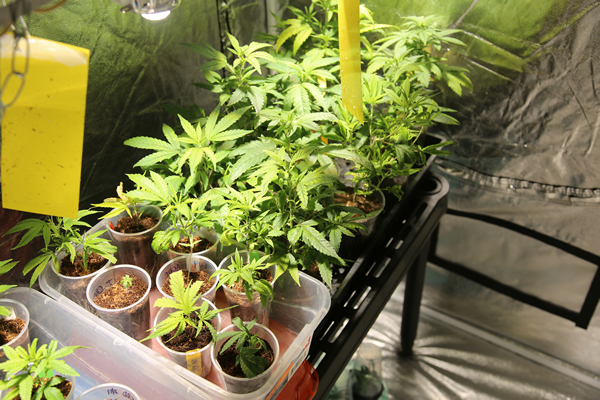 Congress holds hearing on ‘cannabis policies for new decade’
Congress holds hearing on ‘cannabis policies for new decade’
Members of the House Energy and Commerce Committee, Subcommittee on Health last week held a legislative hearing, “Cannabis Policies for the New Decade,” during which they considered multiple legislative bills aimed at amending federal cannabis laws. This marks the first time that members of the Energy and Commerce Committee have debated issues specific to marijuana policy reform.
However, during the three-hour hearing, members declined to explicitly discuss the merits of any specific cannabis measure before the committee.
“At a time when nearly 70 percent of all Americans want to end our failed federal policy of blanket cannabis criminalization, it is unfortunate to see so many participants at this hearing advocating largely for business as usual,” said NORML Executive Director Erik Altieri. He continued: “The fact of the matter is that legalization and regulation work. Eleven states regulate the adult use of marijuana and 33 states provide for medical cannabis access. The time for federal policy to reflect this political and cultural reality is now. Congress should promptly approve the MORE Act and put the failed legacy of marijuana criminalization behind us.”
NORML Deputy Director Paul Armentano expressed disappointment that Committee members failed to advance any of the bills before it, but was not surprised. “Many of these proposals, like The MORE Act, seek to fundamentally change federal marijuana policies,” he said. “However, the witnesses before the committee are proponents and purveyors of the status quo.”
Cannabis Caucus Co-Chair Representative Earl Blumenauer (D-Ore.) stated, “I’m pleased Chairman Pallone and Health Subcommittee Chair Eshoo made this hearing a priority. It was important to hear a number of senior members of Congress affirming the change that is taking place at the state level and affirming the contradictions that are created by the federal government being out of step and out of touch. It’s past time for Congress to catch up with the American people.”
Six cannabis-related bills are currently before the Committee, including HR 3884, the MORE Act, which recently was approved in the House Judiciary Committee by a bipartisan vote of 24-10 and waived by the House Small Business Committee.
Committee members announced their intent to hold a follow up hearing in the future.
Witnesses at Wednesday’s hearing were representatives from the Food and Drug Administration, the National Institute on Drug Abuse, and the Drug Enforcement Administration.
1 in 7 consumers bought cannabis out of state
ONTARIO, Canada — One in seven U.S. cannabis consumers acknowledge having purchased cannabis from an out-of-state market within the past year, according to data published in the journal Drug and Alcohol Dependence.
A pair of investigators affiliated with the University of Waterloo in Canada assessed cannabis purchasing habits of 4,320 subjects who acknowledged having consumed cannabis in the past 12 months.
Overall, 15 percent of participants said that they obtained cannabis from another state. Respondents in states where adult-use cannabis sales are legal were less likely to make out-of-state purchases than were respondents in states where cannabis access is prohibited.
Respondents residing in the south-central region of the United States, which includes Texas, and the north-central region of the United States, which includes Nebraska and the Dakotas, were most likely to acknowledge making out-of-state purchases. Those subjects residing in the pacific region of the United States (California, Oregon, and Washington) were least likely to admit having done so.
Cannabis Culture news in the Blade is provided in partnership with NORML. Visit norml.org for more information.
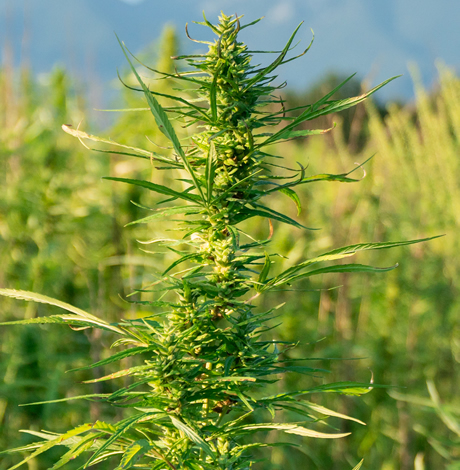
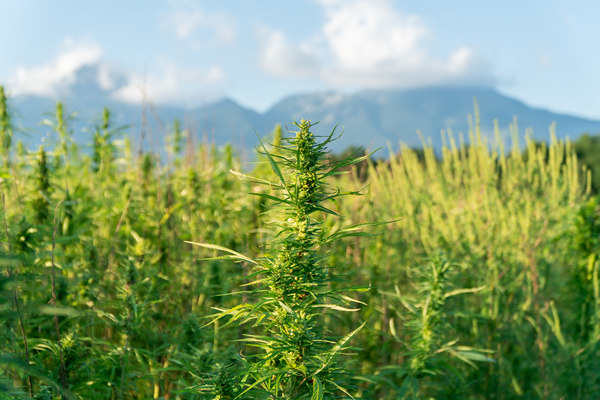 S. Dakota legalization measure lands on 2020 ballot
S. Dakota legalization measure lands on 2020 ballot
PIERRE, S.D. — A proposed measure legalizing and regulating the adult use and retail sale of marijuana in South Dakota has qualified for the 2020 ballot.
South Dakota’s Secretary of State’s Office acknowledged last week that the proposed constitutional amendment will appear on the November ballot. The measure permits individuals 21 and older to possess and to purchase up to an ounce of cannabis and creates a system to license and regulate retail marijuana businesses. Limited home cultivation is also permitted under the measure.
The proposal is the second marijuana-specific initiative to be approved by the Secretary of State’s office in recent weeks. Last month, officials similarly certified Measure 26, which legalizes patients’ access to medical cannabis, for the November ballot.
Eleven states and the District of Columbia have legalized the use of marijuana by adults. In December, New Jersey lawmakers also decided to place an adult-use legalization question on the November 2020 ballot.
Minor pot offenses decriminalized in Hawaii
HONOLULU — Legislation took effect on Jan. 11 decriminalizing minor marijuana possession offenses.
The new law, which was passed in July, reduces penalties involving the possession of up to three grams of marijuana from a criminal misdemeanor, formerly punishable by up to 30 days in jail, a $1,000 fine, and a criminal record, to a non-criminal violation – punishable by a $130 fine. It also provides procedures for the courts to grant an expungement order for those previously convicted of a marijuana possession offense involving no more than three grams.
The law was enacted absent the governor’s signature.
Some lawmakers are hoping to expand the scope of the law in the coming legislative session.
Twenty-five states and the District of Columbia have either legalized or decriminalized the adult possession and use of marijuana.
Italy court rules for marijuana cultivation rights
ROME — Italians may grow personal use amounts of cannabis at home without penalty, according to a determination by the nation’s supreme court.
Justices opined that “at home, small-scale cultivation activities are to be considered excluded from the application of the penal code.” The defendant in the case was cultivating two marijuana plants.
The ruling is similar to a decision made by South Africa’s top court in 2018 when justices concluded that it is not “a criminal offense for an adult to use or be in possession of cannabis in private for his or her personal consumption.” More recently, Mexico’s Supreme Court ruled that laws criminalizing the private use and cultivation of cannabis by adults are unconstitutional.
Packaging cannabis in vacuum-sealed plastic masks smell
FORT COLLINS, Colo. — Subjects are unable to identify cannabis when it is packaged in vacuum-sealed plastic, but can do so when it is packaged in resealable sandwich bags, according to data published in the journal Science & Justice.
A team of investigators affiliated with Colorado State University evaluated whether untrained observers could correctly identify dried cannabis flower based solely on smell. They reported, “[O]pen and casually packaged cannabis was identified with high accuracy, while material packaged in doubly vacuum-sealed plastic was correctly identified at rates no different from chance.”
Authors concluded: “Interpretation of the plain smell doctrine is complicated in states where possession of a small amount of cannabis, or possession by persons with medical marijuana cards, has been legalized. … Given the results of the present study, smell-based searches where the material was vacuum-sealed within one or more layers of plastic may lie beyond the ‘sphere of reliability.'”
Cannabis Culture news in the Blade is provided in partnership with NORML. For more information, visit norml.org.
-

 COMMENTARY5 days ago
COMMENTARY5 days agoUSAID’s demise: America’s global betrayal of trust
-

 COMMENTARY2 days ago
COMMENTARY2 days agoWhat if doctors could deny you insulin for being gay?
-

 Obituary5 days ago
Obituary5 days agoThe queer community mourns the loss of trailblazer Jewel Thais-Williams
-

 Television4 days ago
Television4 days agoICYMI: ‘Overcompensating’ a surprisingly sweet queer treat
-

 Breaking News3 days ago
Breaking News3 days agoProject Angel Food loses $340,000 grant to feed people living with HIV
-

 Opinions3 days ago
Opinions3 days agoThe psychology of a queer Trump supporter: Navigating identity, ideology, and internal conflict
-

 Breaking News3 days ago
Breaking News3 days agoTrump administration sues California over trans student-athletes
-

 Living3 days ago
Living3 days agoFaithfully queer: Finding God and growth in Modern Orthodoxy

